Why Marketing Is Critical to Mobile App Success

Why Marketing Is Critical to Mobile App Success
Companies should focus on marketing if they want their mobile app to succeed. The majority of app developers and marketers dedicate more than 31% of their total app development budget to marketing, according to our survey. Our data indicates the importance of mobile app marketing.
Today’s mobile app development market grows increasingly crowded.
By 2020, the app industry’s revenue is projected to reach $188.9 billion worldwide. International Business Times, a leading provider of business and financial news, reports that, every day, Apple’s App Store receives over 1,000 app submissions.
At this rate of growth, it seems impossible to create an app that will stand out.
Businesses need a carefully constructed marketing plan to boost downloads and attract users for their app.
The Manifest surveyed 301 companies to discover how businesses market their apps, how much they spend, and how they measure success.
Use this report to learn what app marketing strategies work and how you should approach marketing your mobile app.
Our Findings
- Nearly all businesses (98%) have a documented app marketing strategy—a positive sign.
- More than a third (38%) of companies update their app every month, while almost half (45%) update their app every 2-6 months. Updates are necessary to maintain usability and engage users.
- The largest percent of companies (35%) dedicate 31-50% of their total app development budget to marketing, while another fifth (21%) spend 51-70%.
- Most businesses (88%) consider their app a financial success, though experts doubt the reality of this assertion.
- Nearly 90% of companies say their app is profitable and has made back its development and launch budget.
Businesses Actively Implement Mobile App Marketing Strategies
Companies realize the importance of preparing a marketing plan to launch their app.
Nearly 7 out of 10 companies with a mobile app (68%) have a long-term, fully documented app marketing strategy. Meanwhile 30% of businesses have, at least, a short-term, partially documented app marketing strategy.

Only 2% of companies do not formally record how to reach their marketing objectives for their app.
No matter how great, your app won't succeed if users don't know about it.
“Marketing should be considered from the very beginning. It should be part of the whole budget, not after the product is ready,” said Anastasiia Marushevska, Head of Content at Django Stars, a product development company based in Ukraine. “Marketing specialists should be with the product during the customer development stage.”
Incorporating a marketing strategy from the beginning of app development allows for the company vision to remain steady and focused.
Mobile app marketing cannot be an afterthought. You should actively consider your marketing strategy before the app hits the market.
Updates Are Essential to the App Marketing Process
App updates can fix bugs, offer new features, and provide support for different operating systems. Beyond simple repairs, though, developers should update apps to help their product better meet consumer demands.
Over one-third of companies (38%) update their app once a month while 45% of companies update their app at least once every 2-6 months.
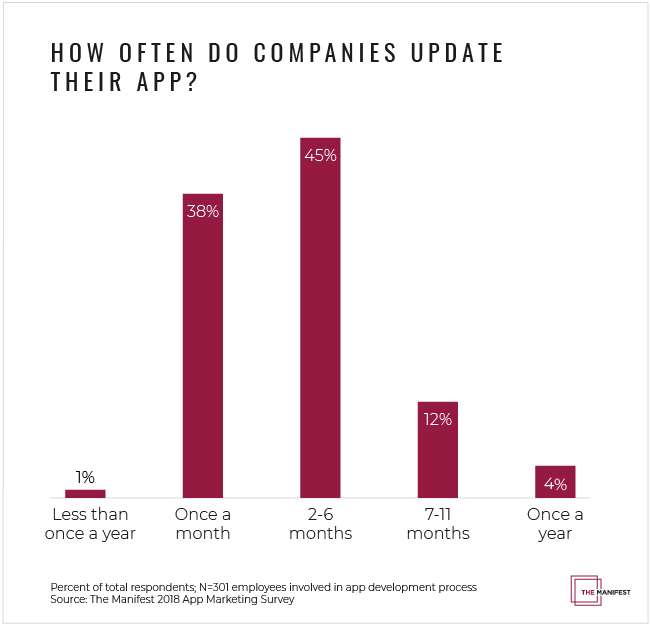
Frequent updates not only allow developers to fix obvious user problems but also experiment with new features.
“[Customer feedback], if taken and used, is always going to be what makes products better,” said Jason Curry, senior director of marketing at Mutual Mobile, a global design and innovation consulting firm.
Feedback is your channel into the customer’s perspective on your app. You can gain valuable insights into what your clients want and how to reach a bigger audience.
For example, Buzzfeed “roadmaps” their app updates, planning changes 3 months ahead. This time allows the company to respond to feedback and determine how to enhance the user experience.
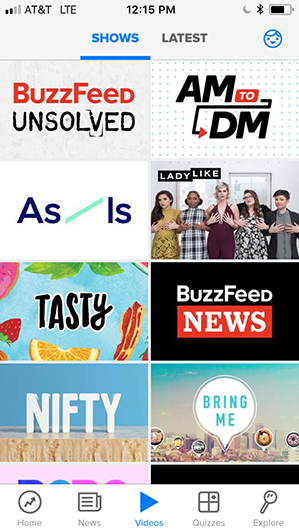
New app developers shouldn’t update too quickly, though.
“I recommend clients wait a minimum of 1 to 3 months to update after an app hits the market,” said Sergio Aguirre, senior sales strategist of Dom & Tom, a digital product agency headquartered in New York City. “Anything less than that and you don’t have enough good data to inform a decision on app updates or new features.”
Aguirre describes how metrics can be misleading when there is not enough context. Companies shouldn’t react to feedback without a concrete data set.
For example, Instagram changed its logo in 2016 to the irritation of thousands of users. Many people complained about the app’s new look and demanded Instagram change back.

At the same time, the company changed users’ feeds to list posts algorithmically rather than chronologically. A petition, signed by 343,000 people, asked Instagram to change back to its old platform. Instagram refused.
Since the 2016 updates, Instagram grew by 400 million users, reaching 1 billion Instagrammers in 2018.
Instagram did not react to the initial user response. The company waited until the backlash died down and everyone adjusted to the new interface. This patience turned out to be a good decision, and Instagram’s popularity continues to increase. Today, Instagram is worth $100 billion.
Obviously, as a social media giant, Instagram can take some feedback without sinking its business. Still, Instagram waited before answering user criticism and ultimately won.
App updates can be necessary, especially with scheduled maintenance. When updating or adding new features, though, be sure to gather enough information to decide if the new design will be successful.
Companies Should Spend a Significant Portion of Their Development Budget on Mobile App Marketing
Part of a business's app development budget must focus on marketing. No company should put all their funds into creating an app and then blindly hope that users will find it.
Over one-third of companies (35%) dedicate 31-50% of their total app development budget to marketing.
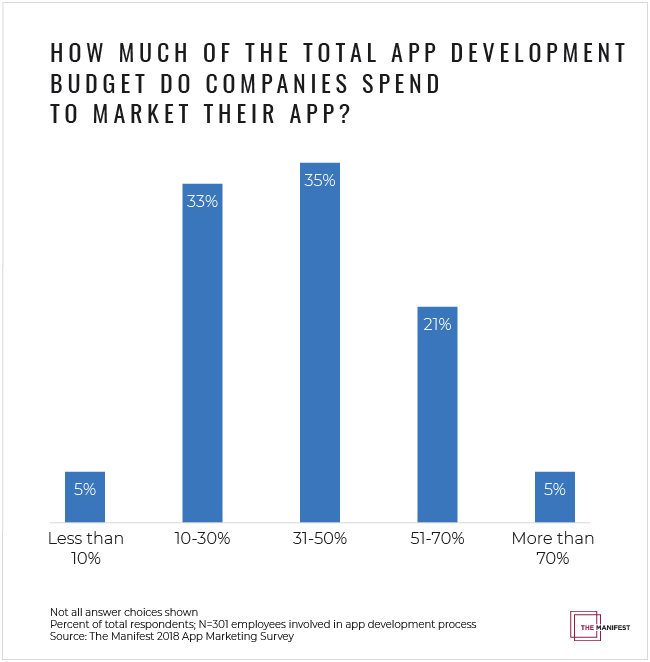
This number may seem high for some businesses, but a significant marketing budget is critical to success.
“I think the idea, ‘if you build it, they will come,’ was true in the very early era of 2008-2010 for mobile development,” said Tom Tancredi, co-founder and chief strategy officer of Dom & Tom. “People are a lot savvier now and they’ll spend what they think they need to spend for their app to be successful.”
With the Android app store now host to 3.8 million apps, developers must be careful about how they market their products to compete with the best apps.
According to Tom Tancredi, companies should be willing to spend half or more of their app development budget on marketing.
“Companies should match what they spend on app development with what they spend on marketing,” Tom said. “It doesn’t matter if they’re a startup or an enterprise company. If they’re not doing just as much marketing as they are doing design and development, it’s very hard for that product to show traction.”
If they’re not doing just as much marketing as they are doing design and development, it’s very hard for that product to show traction.
Our survey found that the largest percentage of companies (36%) spend $50,001 to $100,000 to develop and launch their mobile app. According to Tom’s advice, these companies should then be spending at least $25,001 to $50,000 to market their mobile apps.
Your budget may evolve over time. Marketing will need to change depending on users’ responses to certain campaigns and to the app itself.
For example, Phoebe Perelman, a content marketer at Absolute Marketing Solutions, a digital marketing agency in Tampa, Florida, bases her projects’ budgets on results.
“Once we see (or don’t see) results, we can allocate money accordingly for further marketing or development purposes,” Perelman said.
Testing different marketing channels and processes can result in a more insightful and comprehensive understanding of your potential audience.
Marketing should also be highly targeted to your intended audience.
“We have seen a return on funds by focusing on marketing to the most relevant audience as opposed to as many people as possible,” Perelman said.
We have seen a return on funds by focusing on marketing to the most relevant audience as opposed to as many people as possible.
Focusing on a relevant audience offers a greater chance of success as you can appeal to a specific set of needs rather than attempting to please everyone at the same time.
DashThis, a marketing reporting dashboard software company, bases its marketing budget on iterative tests.
“We didn't have much marketing money at first,” said Jean-Philippe Cantin, a digital marketing specialist at DashThis. “So, we implemented a couple tests, got a couple of new clients, and were able to reinvest the money we made from the first clients into our marketing.”
DashThis maximized their limited marketing budget by learning from their first marketing endeavors and using that initial revenue to bolster further marketing efforts.
“After that initial success, we kept investing a little bit more, and now, our marketing budget is much larger than it was at the beginning,” Cantin said. “We always optimized our campaigns so each time we increased our budget; we were in a good position to generate more revenue.”
From ideation to launch, it is important to allocate enough funds for an effective mobile app marketing campaign.
How Companies Measure Mobile App Success
You thought of an idea. You built that idea into reality. You then marketed your idea so everyone can’t stop thinking about it. Now, how do you know if you made a successful app?
Success can be difficult to define in the app development industry. Companies can measure success in terms of downloads, daily active users, revenue, or building brand awareness.
Nearly 9 out of 10 companies say their app is a financial success.

This overwhelming majority seems almost impossible when you think of how 90% of startups fail.
Some apps do succeed. Apps like Netflix, Spotify, and Facebook all make hundreds of millions of dollars in revenue each year through a subscription-based platform.
Still, only 0.5% of apps are expected to make a profit in 2018.
Companies set individual goals with their apps and measure their results in relative terms.
“The financial success really has to do with KPIs that are defined by the actual company. It’s going to be different for each business,” Aguirre of Dom & Tom said.
For Dominic Tancredi, how much money an app makes isn’t the lone measurement of success.
“I’d say 90% of apps have a level of success to them,” said Dominic Tancredi, co-founder and chief executive officer of Dom & Tom, said.
I’d say 90% of apps have a level of success to them.
Businesses can benefit from the knowledge they gain when creating an app.
“Developing a mobile app can improve your knowledge of the product, the market, the product production process, marketing process, sales process, and all the things that are part of developing an app,” Dominic Tancredi said.
Companies gain valuable experience and make critical connections when they develop an app, better preparing them for their next venture.
How Companies Measure App Profitability
Financial success varies in meaning for many companies. Still, profit has a concrete definition. To turn a profit, your earnings must be more than your costs.
Almost nine out of ten (87%) of employees say their app is profitable and has made back the money spent on development and launch.

Still, with only 0.5% of apps expected to make a profit in 2018, how are nearly 90% of companies claiming to have a profitable app?
Most app developers say they spent between $50,000-$100,000 on app development, which means their app must generate tens of thousands of dollars simply to break even.
Many B2B companies use apps as tools to boost profits for their business, even if they aren't directly collecting money via the app. If an app generates leads or raises brand awareness, then the app could increase the conversion rate from lead to sale.
For example, B2B companies recently released apps that display their inventories and allow customers to sign contracts on their phone.
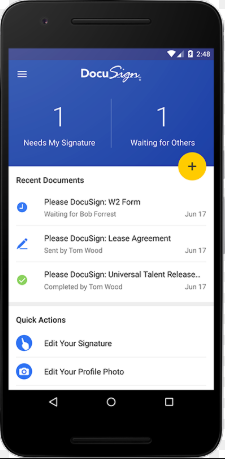
These features speed up the lead-to-deal process, which enables employees to close deals faster and more efficiently. As the rate of conversion increases, so does the profitability of the app.
For Allison Albert, founder of Pet Krewe, a pet costume company with an augmented reality app, the success of the app is seen relative to the whole company's success.
“Our end goal isn’t an app success but a product goods success that is complemented by the app,” Albert said.

Albert explains how her company uses the app to enhance the user experience rather than function as a product on its own.
“When you order a Pet Krewe costume, you get these little welcome kits. Inside that kit, there's a card that explains what AR is and how you can create some really cool worlds and enhance your costuming experience,” Albert said. “We launched the app two weeks ago and we’ve had close to 500 downloads.”
The app boosts brand awareness while maintaining customer engagement. Although the app may not be generating money from downloads or in-app purchases, the app is still increasing the overall revenue of the company.
App developers and marketers could define app profitability relative to the app’s effectiveness within the sales process. As the app becomes a new outlet for finding potential customers and an integral part of the buying process, exposure can benefit the company and boost revenue, making up the app’s development and launch cost.
Grow Your Business as You Build Your App
Companies should be careful to look at their app holistically. Mobile apps must function as tools to advance the progress of a business, not as the sole endpoint.
“The app isn’t the business, but it’s the product that the business creates,” Dominic Tancredi said. “Every product needs sales, marketing, leadership, design, and development. It needs a village.”
Vine acts as a prime example of a popular app that failed as a business. Vine peaked with 200 million monthly users and 39 million uploaded videos. Many videos became integral to pop culture.
Still, even with 1 billion loops played daily, Vine struggled to find ways to monetize its popularity. Although acquired by Twitter in October 2012, Vine shut down in 2017 after losing out to competitors like Snapchat and Instagram.
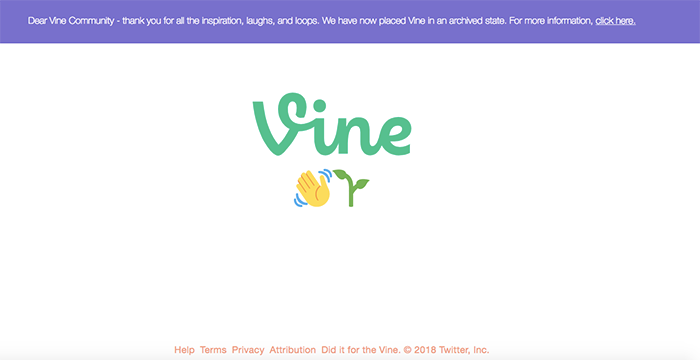
Vine faced management turnover, revenue loss, and poor planning, which resulted in the death of the app.
It is not enough simply to have a great idea for an app. The execution remains equally important.
Companies need to market their app strategically to create a business. An app without “sales,” “marketing,” or “leadership” ultimately will fail because of its inability to increase demand and generate revenue.
You should implement a comprehensive marketing strategy that includes how to target your intended audience. Work toward turning your target audience into a loyal customer base, which will lead to sales.
Your business cannot solely focus on developing an app. With only one focus, the business has nowhere to climb. It stays stagnant, and thus, the app exists as a tool, but with no way to increase profits.
Your business should reflect not only the popularity of the app but also its financial potential to truly measure success.
Make Your Mobile App Development Matter
Developers should emphasize marketing throughout the app development process. Most businesses realize this, as 98% of companies have a fully documented marketing strategy.
A business defines success based on its own expectations and needs. Nearly 9 out of 10 companies (88%) say their app is a financial success, though the definition of success remains flexible.
Meanwhile, 87% of app developers and marketers say their app is profitable and has made back its development and launch budget. App developers may consider profit, however, in terms of generating sales leads, brand awareness, and customer engagement rather than straight revenue.
By implementing correct budgeting, paying keen attention to updates, and understanding metrics, you can maximize the success of your mobile app.
About the Survey
The Manifest surveyed 301 app developers and marketers from businesses across the U.S.
Most survey respondents are managers (34%), directors (15%), C-level executives (14%), and senior managers (10%).
Nearly three-fourths (73%) of respondents lead their company's app development and marketing while 27% of respondents play an active role in the app's development and marketing.
Over one-third (36%) of the companies surveyed have more than 500 employees; 37% of businesses surveyed have less than 200 employees.
